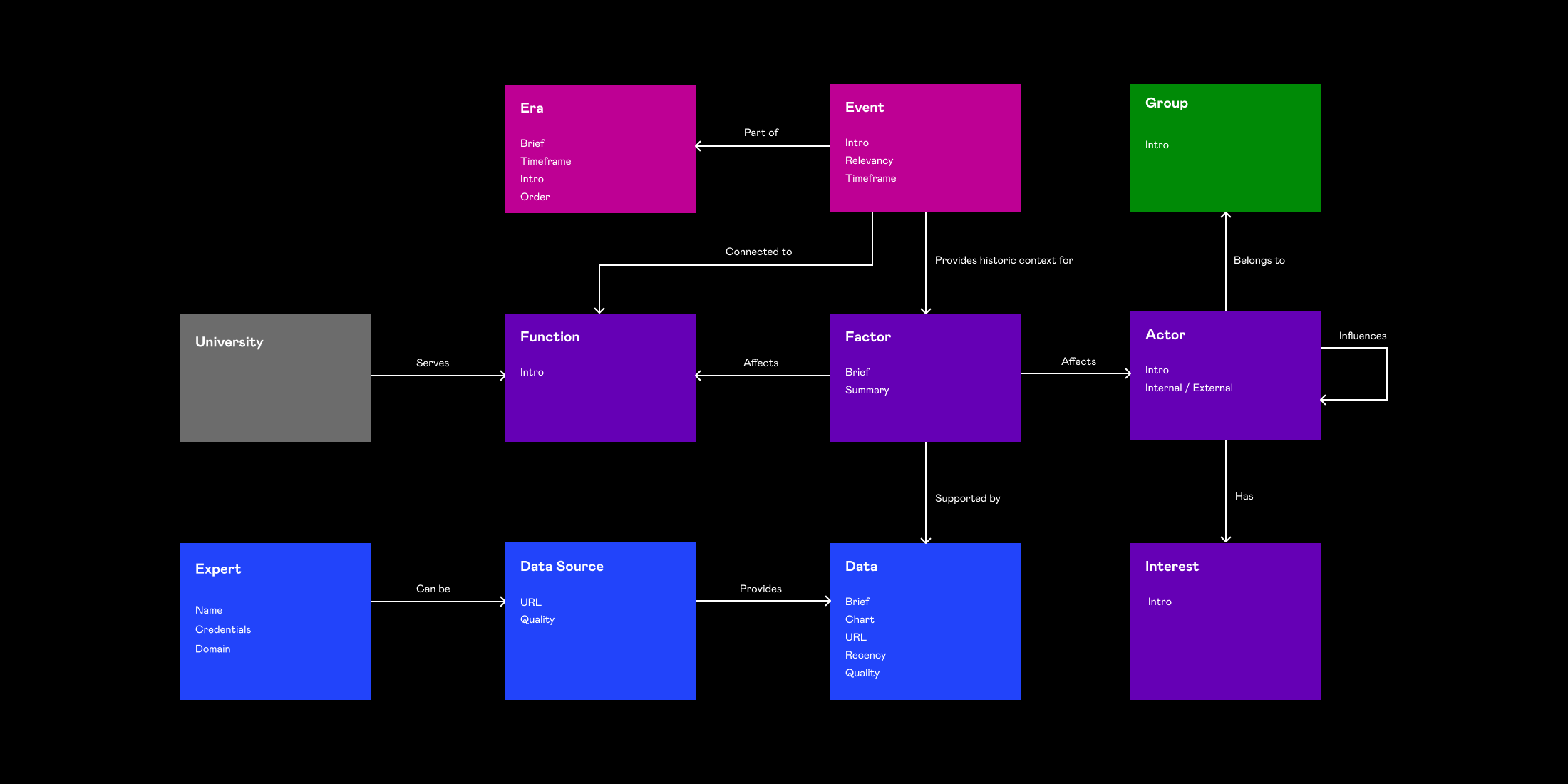In this case study, I will show you how to build a system in Tana for exploring complex multidisciplinary problems/subjects (with a help of AI).
The system provides a general framework that you can use as a backbone for:
- Data collection & evaluation
- Analysis & sensemaking
- Formalizing learnings
- Synthesizing new knowledge
This build includes many structures/workflows that support and facilitate all these processes.
I call this type of system a Sensemaking Environment.
To illustrate how to use the system, I will take the real live case: Crisis in Higher Education in US.
It was heavily inspired by the series of podcasts by Marc Andreessen & Ben Horowitz (a16z)
I directly use some of their frameworks as a base for this build, namely:
- 12 functions of the University
- 15 constituents of the University (here I call them actors)
Although the build is customized for the specific case, the general approach is very scalable and can be applied/reused in many different contexts with some minor adjustments.
GUIDE
The system is based on the following ontology

These four entities make up the core of it:
University function
The specific role that the University plays in the domain of HigherEd / society as the whole
Actor (stakeholder)
Person/ group / organization that is capable of exerting influence within the system.
Event
Provides relevant historical contexts for a specific factor, functions or for the whole domain
Factor
It integrates everything together. Factor analysis allows you to discover complex causal relations (factors /actors/functions) and mine insights.
Full video GUIDE
HOW TO
Here is the list of functions/activities that you can use this system for:
- Data collection & evaluation
- Collect & filter data
- Connect data to the data source
- Evaluate data & data source quality
- Connect data to factors
- Discover patterns, mine insights
- Stakeholder analysis
- Identify key stakeholders
- Map and group stakeholders
- Discover influence & power dynamics
- Factor analysis
- Identify key factors that influence the domain
- Assess the impact of each factor
- Explore interrelationships among factors
- Discover complex causal relations (factors /actors/functions)
- Historic analysis
- Collect the relevant historical events
- Filter the relevant events
- Group events by eras & view them as a timetable
- Explore the historical context for each factor
- Connect events to the relevant functions
Full video HOW TO
The template
🔗Install Tana Template

